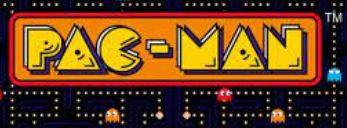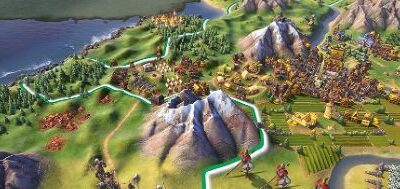In Overcooked, teamwork is the secret ingredient to success.
Efficient teamwork ensures orders are prepared, cooked, and served promptly, even as kitchens become more chaotic.
To excel in the game and earn those coveted stars, you’ll need a combination of efficient teamwork, strategic planning, and effective communication.
Here are some comprehensive tips that can help you succeed
1. Communication is Key
Effective communication involves not just sharing what you’re doing, but also understanding what your teammates are up to.
Regularly update your teammates about your progress, ingredient availability, and any challenges you’re facing.
Use a mix of in-game communication options like emotes, quick chat messages, and voice chat if available.
For online play, consider using external voice communication platforms to facilitate real-time coordination and quick decision-making.
2. Assign Roles
Assigning roles isn’t just about splitting tasks arbitrarily; it’s about capitalizing on each player’s strengths.
Some players might be adept at multitasking, while others excel at focused tasks.
A dedicated chef can keep the stoves running smoothly, while someone else manages the plating and serving.
A player with good spatial awareness could be responsible for organizing and cleaning plates.
Adapting roles to each player’s skills can significantly enhance efficiency.
3. Plan Ahead
When planning, discuss not only the dishes you need to prepare but also the sequence in which you’ll tackle them.
Consider the layout of the level, the location of ingredients, and the placement of stoves and chopping stations.
By strategizing together, you can optimize your approach and minimize the time wasted due to indecision during gameplay.
4. Stay Organized
Maintaining a well-organized kitchen involves creating designated zones for specific tasks.
Establish a clear space for ingredient preparation, cooking, plating, and dishwashing.
Keep ingredients neatly arranged and easily accessible, cooked dishes together in a central location, and dirty plates stacked where they won’t hinder movement.
Organization simplifies communication and ensures everyone can find what they need without confusion.
5. Prioritize Tasks
Prioritization extends beyond just cooking time.
Consider the complexity of the dish, the number of ingredients required, and the potential for combining ingredients for multiple dishes.
Plan to start dishes with longer cooking times early on, but also consider which dishes can be prepared in parallel to optimize efficiency.
6. Time Management
Effective time management is about more than just watching the clock. Allocate time to tasks proportionally based on their complexity and cooking time.
If a dish requires multiple steps, such as combining ingredients before cooking, allocate additional time for preparation.
Regularly check the clock and adjust your plan as the level progresses to ensure you stay on track.
7. Adapt to Challenges
Challenges introduced in different levels can range from moving walkways to changing kitchen layouts.
Adaptability is key – communicate changes to your team, assess their impact, and quickly adjust your strategy.
For instance, if the kitchen layout changes, adapt your designated zones and routes to accommodate the new layout efficiently.
8. Upgrade Your Kitchen
Upgrades can significantly impact your gameplay. Assess your team’s playstyle and strategize which upgrades will benefit you most.
For example, if your team often juggles multiple tasks, consider upgrading cooking stations to improve efficiency.
If communication is a challenge, upgrades that enhance movement speed might be more valuable.
9. Practice Efficient Chopping
Efficient chopping isn’t just about speed; precision matters too. Aim to cut ingredients in the fewest possible strokes without sacrificing accuracy.
Practice different chopping techniques to optimize your speed while ensuring you’re producing the right-sized ingredients for each dish.
10. Utilize Dash Mechanic
The dash ability is a powerful tool for speeding up movement. Mastering when and where to dash is crucial.
Use it to navigate around obstacles, reach distant stations faster, and quickly respond to urgent situations.
11. Minimize Wasted Time
Efficient movement is key to reducing wasted time. Plan your routes to avoid unnecessary running back and forth.
For example, if you’re regularly shuttling between chopping and cooking stations, try to create a loop to minimize travel time.
12. Delegate Cleaning
Dishwashing might seem mundane, but it’s a critical task. Assign a player to be the dedicated dishwasher, responsible for keeping a steady supply of clean plates.
They should prioritize cleaning dirty dishes and returning them to the plating area promptly.
13. Stay Calm
Staying calm is easier said than done in the midst of the game’s chaos. Develop a team culture of maintaining composure under pressure.
If someone starts to feel overwhelmed, encourage them to take a deep breath, communicate their needs, and refocus on their tasks.
14. Practice, Practice, Practice
Practice goes beyond just repeating levels. Experiment with different approaches and strategies. Play specific levels repeatedly to master their intricacies.
Pay attention to how your team’s coordination improves over time.
15. Learn From Mistakes
When analyzing mistakes, focus on specific actions that led to problems.
Did a dish burn because of a delay in plating? Did an order go out incorrectly due to miscommunication?
Use failures as learning opportunities to refine your approach and prevent similar issues in the future.
16. Experiment with Team Combinations
Each player brings a unique perspective and playstyle.
Try different team combinations to discover synergies. Some players might excel at taking charge, while others shine as support.
Adapt your roles and responsibilities to complement each other’s strengths.
17. Pay Attention to Orders
Order accuracy is a cornerstone of success. Double-check each order’s requirements, and communicate any special requests clearly.
Prioritize orders that are about to expire, ensuring that no customer is left waiting too long.
18. Stay Updated
Keep an eye out for game updates, patches, and balance changes. These updates can introduce new mechanics, alter level dynamics, or adjust difficulty.
Staying informed ensures you can adjust your strategies accordingly.
19. Celebrate Small Achievements
Acknowledge and appreciate incremental progress. Celebrate the moments when your team’s coordination improves, even if you don’t achieve 3 stars immediately.
Recognizing these smaller victories motivates the team and fosters a positive atmosphere.
20. Have Fun
Amid the pursuit of victory, don’t lose sight of the game’s entertainment value.
Embrace the laughter that arises from chaotic mishaps and celebrate the joy of collaborative triumphs.
Remember, Overcooked is about enjoying the experience with your teammates.
Conclusion
By exploring these subheadings in greater detail, you’ll gain a profound understanding of the strategies and dynamics that contribute to achieving 3-star victories in Overcooked.















